🌍 Frontier Markets News, September 12th 2025
A weekly review of key news from global growth markets

Africa
Stability sets stage for lower interest rates
Reserves are rebuilding and currencies firming across several key African markets, setting the stage for monetary easing. Foreign exchange reserves in Nigeria, for example, have been climbing on growing sales of crude oil and portfolio inflows. At the same time, the naira has stabilized in the official window, and analysts see room for the central bank to begin cutting interest rates later in the year.
Egypt is seeing an even rosier picture. Reserves have pushed past $49bn and inflation has decelerated into the low-teens. The central bank, which had already cut rates by 3.25 percentage points this year, cut a further 2% this week.
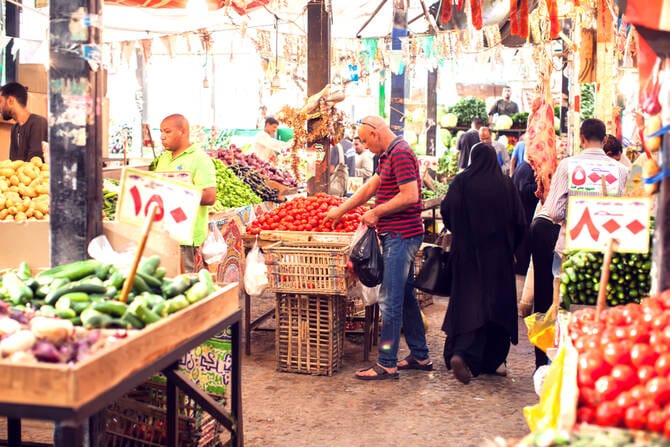
South Africa’s stronger reserve position, which has supported the rand, lowered yields, and helped strengthen growth, will give its central bank more flexibility to start a measured easing cycle. Zambia’s kwacha has regained ground and inflation has eased; the BoZ is on hold for now but has opened the door to cuts once inflation is durably within the bank’s target range.
- Increased financialization of Nigeria’s economy may hide consumer weakness (Business Day)
As easing continues, caution must remain. Kenya’s uptick in inflation follows a series of seven rate cuts by the central bank, leaving the policy rate at 9.5%. Central banks are also having to balance global conditions, particularly uncertainty over the direction of US monetary policy.
Algeria racks up billions in deals at IATF
Algeria this week sealed some $11 billion in deals at a pan-African trade fair held in the country’s capital Algiers, This Day Live reports. The agreements included $1.2 billion for a steel supply contract, a $2.5 billion investment by Elsewedy Electric to build 10 factories for electrical equipment and renewable energy products, and a $200 million agro-industrial partnership between Algeria’s Agrolog and Uganda’s Abarci for cocoa and coffee processing.
According to the event’s co-organizers, Afreximbank, the African Union Commission and the Africa Continental Free Trade Area Secretariat, more than $48 billion in deals were signed during the multiday event. Highlights included a $300 million deal to supply electronic payment terminals to Nigeria, sales of footwear and electronics to Tanzania, Niger, and Zimbabwe, a contract for 50,000 tons of cement to Mauritania, and continued fertilizer exports to Kenya.
The announcements weren’t limited to bilateral deals. Afreximbank unveiled the African Trade and Distribution Company with $1 billion in capital to push intra-Africa commerce, finance working capital, and keep more value-addition on the continent rather than exporting raw materials.
Ethiopia inaugurates mammoth hydropower dam
Ethiopia this week formally inaugurated Africa’s largest hydroelectric dam, potentially doubling its power generation capacity, but also continuing to stoke tensions with its neighbors, DW reports. Addis Ababa hopes the $4.8 billion Grand Ethiopian Renaissance Dam, with a planned capacity of 5,150 MW, will end domestic blackouts and enable the East African country to sell surplus electricity, shoring up long-term foreign-exchange reserves
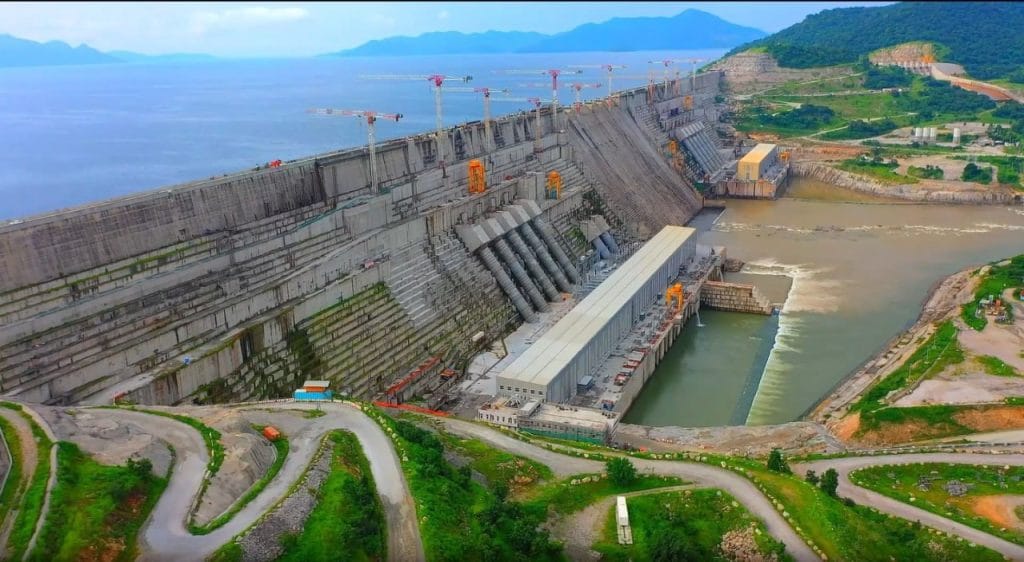
Its neighbors Egypt and Sudan are less excited, viewing the dam as a serious threat to crucial—and scarce—water supplies. Egypt’s President Abdel Fattah El-Sisi said last month the filling of the dam’s massive reservoir without sealing a legal agreement with Sudan and Egypt violated international law and he threatened to take action if the dam harmed his country’s water security.
The dam’s scale also gives Ethiopia greater fiscal and diplomatic leverage. the country has already lined up $427 million in power export deals to companies and countries, including Kenya, Djibouti and Tanzania.
Asia
Mass protests drive Nepal PM to resign
Nepal’s Prime Minister Sharma Oli resigned this week after the country was shaken by a wave of demonstrations that turned deadly when the army tried to disband them, Reuters reports. The demonstrators, many of whom are Gen Z, say they are fed up with government corruption, and took to the streets after the government banned a swath of social media sites last week, BBC reports.
Police opened fire on the demonstrations, killing at least 30, the New York Times reports. On Tuesday, protesters set fire to the country’s parliament and supreme court.
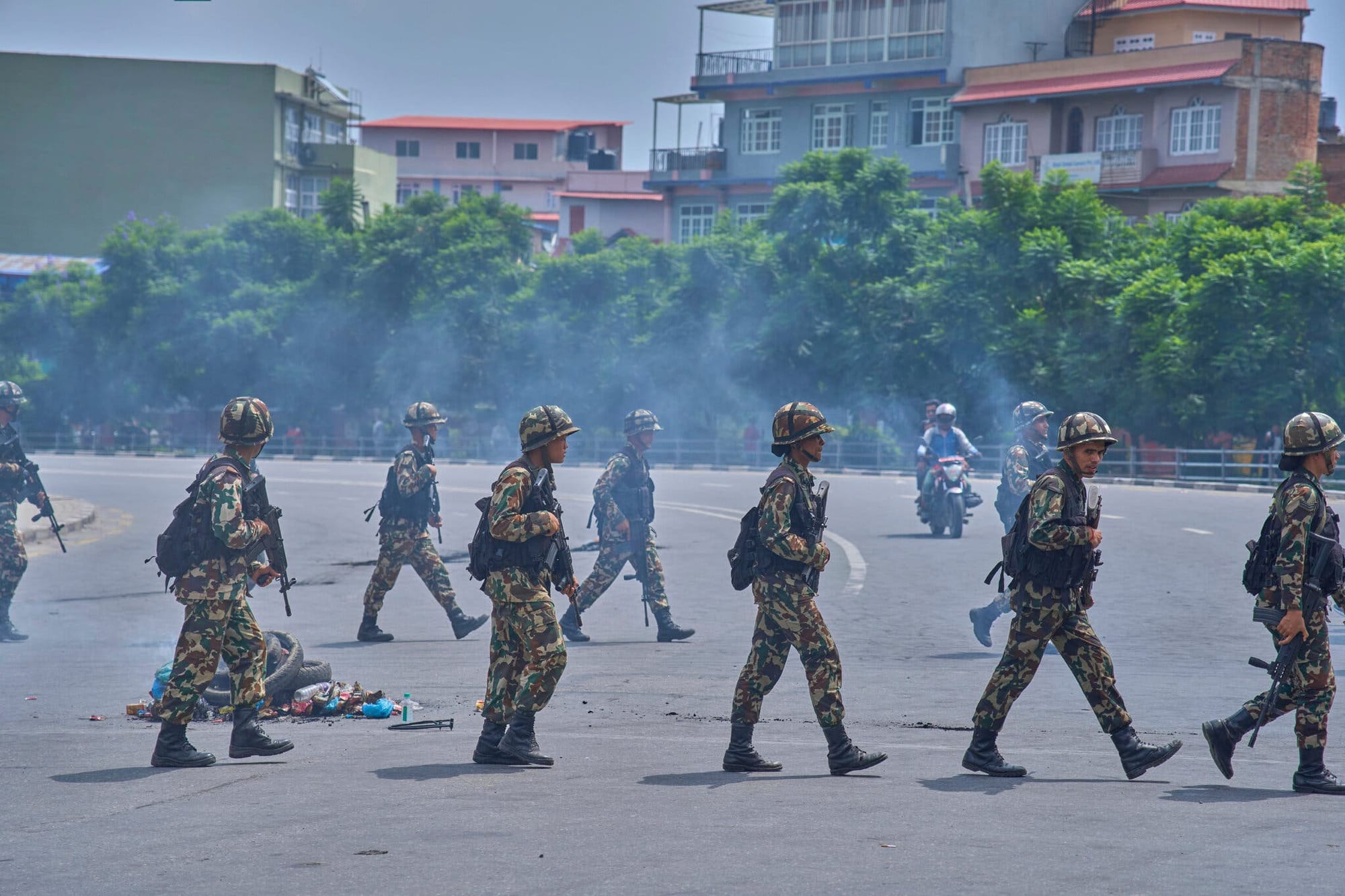
Sushila Karki, a former chief justice of the Nepali Supreme Court, has emerged as a favorite to lead the country, Hindustan Times reports. Her anointment could prompt a shift in Nepal’s relations with China. Karki attended graduate school in India and has said she has a “good impression” of Indian Prime Minister Narendra Modi, FirstPost reports.
New Thai PM takes office with promise to reduce cost of living
Anutin Charnvirakul took office as Thailand’s next prime minister on Sunday, bringing an end to the leadership of political scion Paetongtarn Shinawatra. In his first televised address to the country, Charnvirakul pledged to bring down debt and the cost of living, and to end the country’s lingering border dispute with Cambodia, Bloomberg reports.

Shinawatra lost favor in the Thai legislature after Cambodia’s former leader Hun Sen publicized a phone call with her in which she criticized Thailand’s armed-forces leaders.
Her father, two-term prime minister Thaksin Shinawatra, has also fallen out of favor. Having fled the country after falling out with the country’s royalist-military establishment, he received a royal pardon and returned from exile two years ago. This week, however, the Thai Supreme Court ruled he should spend a year in prison, the New York Times reports.
Vietnam approves five-year pilot for crypto trading
Vietnam’s government this week signed off on a five-year trial for digital asset trading, CoinTelegraph reports. Deputy Prime Minister Ho Duc Phoc signed the resolution enforcing a strict framework for issuing and trading digital assets.
The program allows only for Vietnamese issuers and the assets must be sold only to foreign investors, according to a government statement. The resolution also requires all trading to take place in Vietnamese dong.
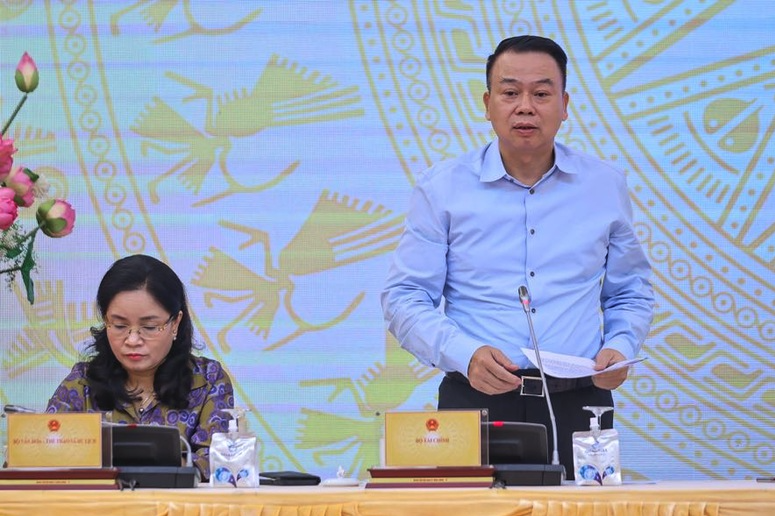
Vietnam had been reluctant to embrace crypto, although its citizens have become major holders of digital assets. The country ranked fifth on an adoption index compiled last year by data firm Chainalysis. In June, the country’s parliament changed course, announcing that it would recognize digital assets beginning next January.
Middle East
Saudi fund joins Africa gold rush
Saudi Arabia’s Vision Invest, an infrastructure development and holding company that specializes in public-private partnership, this week announced it had joined a $700 million capital raise for economic-zone developer Arise Integrated Industrial Platforms, Semafor reports. The move is part of a broader wave of investment from Gulf states into the continent.
GCC states such as the UAE have since 2019 channeled over $110 billion—mostly from state-owned investment funds—into physical assets in Africa, including trade infrastructure, energy projects and mines. Qatar has recently joined the trend, with a member of the royal family last week wrapping up a whistle stop tour of Botswana, Burundi, Democratic Republic of Congo, Mozambique, Zambia and Zimbabwe that resulted in over $100 billion in pledges.
Arise will use the funds to develop “sustainable industrial systems” in sub-Saharan Africa.
MTN’s Middle East exit hindered by US sanctions
South African telecoms firm MTN this week said its planned “full exit” from the Middle East was stymied by US sanctions that are preventing it from selling its minority stake in Iran-based Irancell, Bloomberg reports. Describing the stake as a “frozen asset” MTN CEO Ralph Mupita said the Trump administration’s sanctions strategy has made finding willing buyers effectively impossible, and restrictions on banking transactions with Iranian entities would make it impossible to withdraw proceeds from a sale were a buyer to eventually be found.

The US Department of Justice in August launched a probe over allegations that MTN’s participation in Irancell violated the Anti-Terrorism Act. MTN has stated it had no operational control in its Irancell stake, and that it is fully and voluntarily cooperating with US authorities.
Europe
Poland risks downgrade despite strong growth
Ratings firm Fitch warned this week it could downgrade Poland’s credit rating if the government is unable to stabilize its finances, Bloomberg reports. The firm lowered Poland’s outlook to negative last week, citing deficits averaging nearly 7% of GDP and debt on course to approach 70% by 2027.
Political tension between recently elected President Karol Nawrocki and Prime Minister Donald Tusk’s coalition is expected to stall fiscal consolidation until after parliamentary elections scheduled for 2027. Nawrocki has warned he will block tax increases while proposing his own costly initiatives, Bloomberg wrote.
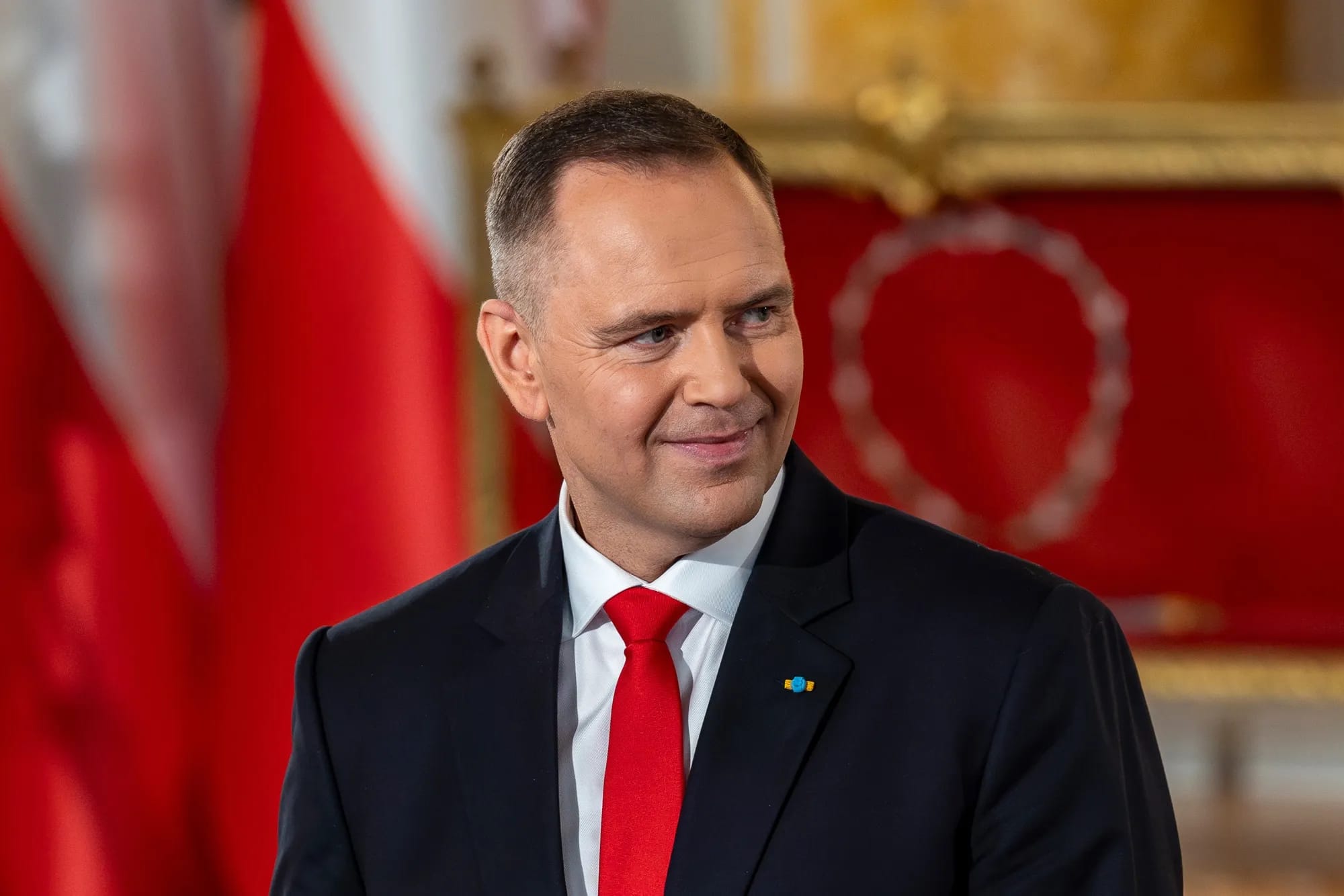
The near-term picture is rosier, though, FrontierView reports. Growth momentum remains intact, with forecasts at around 3.2% through 2026—nearly twice the euro area average. EU funds and resilient domestic demand continue to underpin the economy, although risks are accumulating.
This week’s Russia’s drone incursion into Polish airspace highlighted the geopolitical headwinds, adding to fiscal and political strains that are already weighing on investor sentiment. For businesses and investors though, Poland remains a relative outperformer in Europe, despite the rising political and security uncertainty.
Albania unveils ‘AI minister for procurement’
Albania’s government has created a “virtual minister” in an attempt to purge public procurement of corruption, Politico reports. Based on a digital assistant that has been helping Albanians interact with the government since January, the new AI-powered “minister” will vet all tenders in which the government is contracting with private companies, Albania’s Prime Minister Edi Rama said.
Rama said he hoped Albania would become “a country where public tenders are 100% free of corruption,” The Guardian reports.
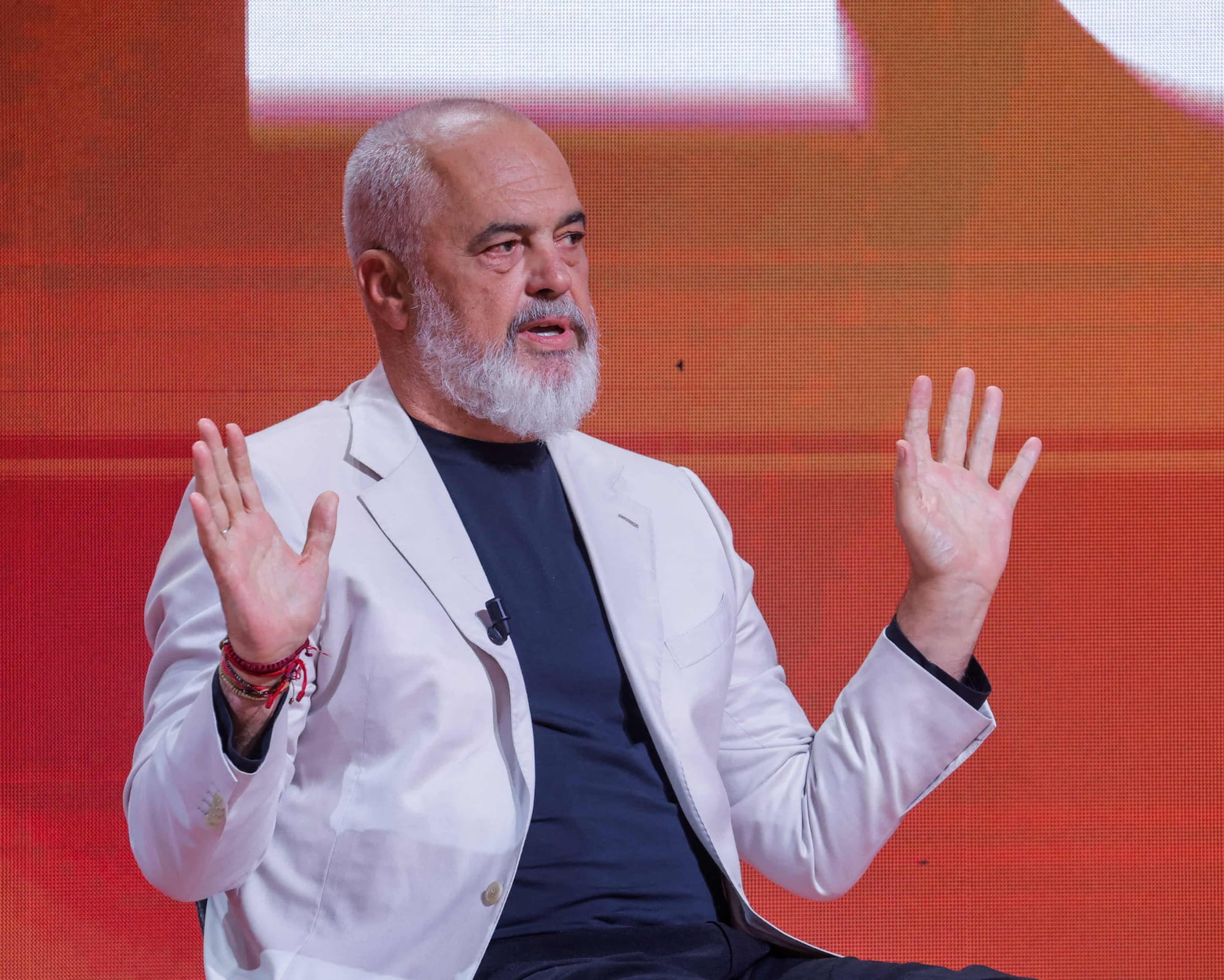
Rama is also keen to rebrand Albania as a digital governance pioneer—part of his push to fast-track EU accession by embracing technology-led reforms. He is also eager to highlight efforts to tackle Albania’s relatively high level of corruption, which is considered a potential roadblock to its effort to join the EU.
Latin America
Argentine markets slump as Milei underperforms
Argentine markets tumbled after President Javier Milei’s coalition suffered a crushing defeat in Buenos Aires provincial elections, raising questions about his ability to sustain support for austerity reforms. The benchmark Merval index fell nearly 13% on Monday, its steepest one-day drop since 2020, while the peso slid 4% and sovereign bonds sank toward 55 cents on the dollar.
Investors, already wary of Milei’s fiscal battles with Congress and rising unemployment, viewed the landslide loss as a bellwether for next month’s national midterm elections.

Peronists took 47% of the vote in the province, home to almost 40% of Argentines, versus Milei’s 34%. The scale of the setback deepened fears that Milei will be unable to expand his congressional minority, undermining the IMF-backed fiscal agenda that had briefly restored investor optimism earlier this year.
Milei conceded “a clear defeat” but vowed to double down on reforms. That might be difficult: With foreign exchange reserves still in the red and heavy central bank intervention straining IMF targets, analysts warned the peso may face further devaluation pressures. Market watchers expect turbulence to persist unless Milei can shore up his political base and reassure investors about his debt refinancing plans.
Questions emerge over Jamaican leader’s election
Less than a week after Jamaica’s Prime Minister Andrew Holness secured a third consecutive term, opposition leaders have raised questions about the validity of his victory, Jamaica Gleaner reports. Holness’ Labour Party won 35 of 63 seats in last week’s election but the questions focus on a late surge in votes for the Prime Minister that helped him get reelected.
The overall outcome of the election, which sees the Labour Party retain power, is not in question and, while the party’s margin is slimmer than before, the result will ensure monetary and fiscal policy continuity. Both major parties remain committed to debt reduction and inflation targeting, providing rare stability in the region.

Jamaica’s case highlights the value of credibility and institutional follow-through: Fitch forecasts Jamaica’s debt-to-GDP ratio will decline to 59% by 2027, a year ahead of the official target. Inflation also remains anchored and finances are well supported by tourism and remittances. Challenges remain, including high crime and low productivity, but fiscal credibility and investor confidence are expected to hold through the next term.
What We’re Reading
Ghana’s booming ICT sector propels GDP growth to beat estimates (Bloomberg)
Côte d’Ivoire’s former first lady cleared to contest presidency (BBC)
West Africa central bank to launch regional instant payment network (Daba)
Mali fuel blockade sparks fear and economic strain (AfricaNews)
Chinese firms win bid to rebuild Cameroon-Chad trade route (Bloomberg)
Malawi’s president apologizes for fuel shortage ahead of election (Bloomberg)
Skepticism greets Zambia’s $19bn Qatari mega-deal (African Business)
Nissan explores hybrid rollout in South Africa (Reuters)
South Africa’s GDP growth conceals investment slump (FrontierView)
Libya’s economy hit by regional conflict and intensifying migration flows (Business Insider Africa)
Pakistan ‘secretly surveils citizens’ (Amnesty)
Tariffs weigh on Vietnam’s US exports and Chinese imports (Reuters)
Myanmar rebels look to India to fuel rare earth demand (Reuters)
Indonesian markets rattled after president fires finance minister (FT)
Indonesia’s anemic mortgage market crimps housing sector development (Nikkei)
Solomon Islands adopts Chinese surveillance tech (Reuters)
Pacific islands freeze out US and China at annual summit (FT)
Iraqi officials to visit Russia for talks on nuclear power tie-up (AGBI)
Saudi Aramco and Sinopec launch $9.8bn refining venture in China (Anadolu)
US and China drive record $31.7bn in Saudi FDI in 2024 (Semafor)
Saudi mortgage securities free banks for Vision 2030 buildout (Semafor)
Red Sea cables cut, disrupting internet access in Asia and Middle East (AP)
Turkey’s opposition head accuses Erdoğan of legal ‘coup’ (FT)
Turkey said to weigh multibillion-dollar deal for iconic bridges (Bloomberg)
Dwindling oil revenues crimp Russia’s finances (FT)
EU weighs new sanctions on Russia to hit banks and oil trade (Bloomberg)
Irfaan Ali sworn in for second term as Guyana’s president (Mercopress)
Venezuela to boost troops to tackle drug trafficking (Reuters)
Peru’s fiscal improvement may slow without revenue reforms (Fitch)
We are committed to providing FMN readers with a free weekly digest of politically unbiased, succinct and clear news and information from frontier and small emerging markets.
Please consider becoming a paid supporter to help cover some of our costs and support our continued development of sharp markets-focused coverage and new informational products. Paid subscribers will also gain exclusive access to our quarterly EM/FM report that aggregates EM insights from 25 major banks, international institutions and consultancies.





